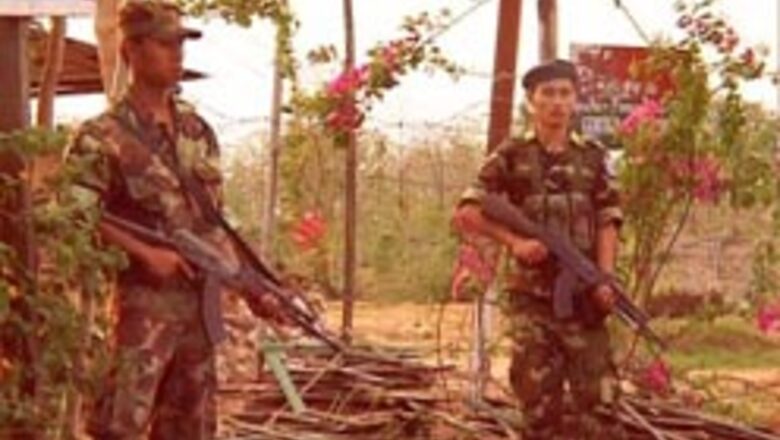
views
New Delhi: The latest round of negotiations between the NSCN(IM) and the Government has failed to make any "headway", a top rebel leader said on Monday but hoped something concrete will come out soon in the attempts to resolve the decades-old Naga issue.
"The talks have entered into the deepest stage. Hopefully, something concrete may come out in the next two to three rounds of dialogue on substantive issues," top NSCN(IM) leader Karaiba Chawang said.
Chawang said during the talks held between October 17 and 19 in Amsterdam the rebels and the representatives of the Government held intensive discussions on "substantive issues" and "special federal relationship" with the Nagas.
The "substantive issues" included unification of all Naga-inhabited areas of the northeast, separate representation at the UN and greater rights over natural resources, finance, defence and policing.
He, however, admitted that "no headway" has been made in the Amsterdam talks amid "tug of war" between the two sides.
"But the positive story is that there have been closer and better understanding between the two sides and they promised to carry forward the peace negotiations," Chwanag said.
Official sources said there are many ups and downs in every peace process and government was looking for a "package" rather than a "piecemeal" solution to the six-decade-old insurgency problem of Nagaland.
The meeting was attended by a Group of Ministers, headed by Union Minister Oscar Fernandes, and NSCN(IM) representatives led by chairman Isaac Chisi Swu and General Secretary Thuingaleng Muivah.
The reports of clashes between NSCN(IM) and its rival NSCN (Khaplang) cadres, which have resulted in killing of several people in the recent past, have figured in the talks.
The NSCN(IM) has demand immediate Government action to "control" the cadre of NSCN(K), which also has a ceasefire pact with the Centre, since such incidents may increase further tension in Nagaland, sources said.
The Naga side also insisted on commitment from the Centre to its key demand of unification of Naga-inhabited areas or "Greater Nagalim", a demand strongly opposed by Nagaland's neighbouring states - Manipur, Arunachal Pradesh and Assam.
The rebels have suggested that the relationship between India and the Nagas should be defined by a mutually agreed settlement incorporated in the Constitution as well as in what it calls a "Naga constitution", sources said.
The Government negotiators have argued that the country's Constitution is flexible enough to take care of regional aspirations and diversities. It allows for "asymmetrical federalism" – different states and regions can relate to the Centre differently. For example, it recognises the Constitution of the state of Jammu and Kashmir, they said.
NSCN(IM) and security forces in Nagaland have been observing a truce since August 1997. The truce has been extended every 12 months since then except last year when it was renewed for just six months at the rebels' insistence and extended by another six months in February before further extending for a year in July 31.
Apart from Fernandes, Centre's interlocutor for Naga talks K Padmanabhaiah and two other members of the GoM – Union Minister of State for Home S Reghupathy and Minister of State at the PMO Prithviraj Chavan - took part in the talks.

















Comments
0 comment